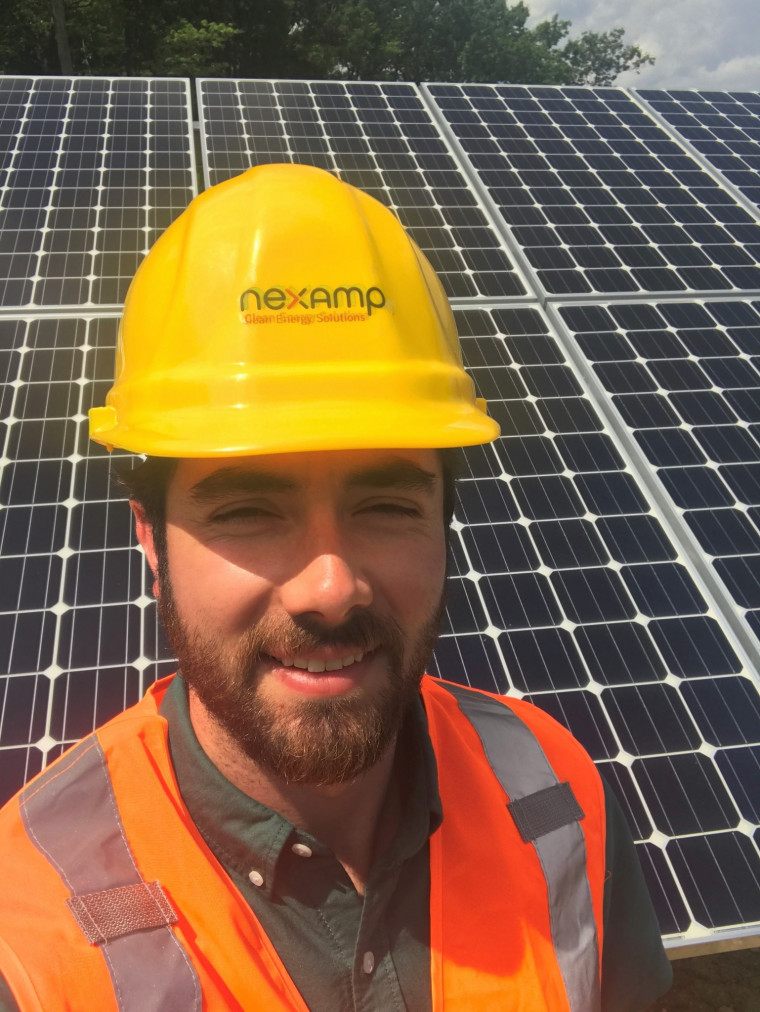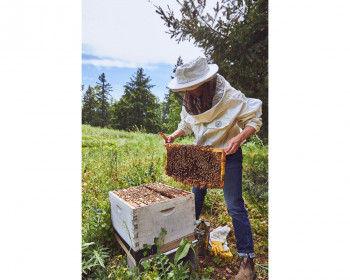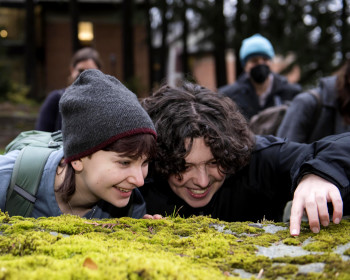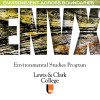ENVS Blog: From West Coast green building to East Coast solar
Open gallery

In the sixteen months since I graduated from Lewis and Clark, I’ve envisioned many different futures for myself. Graduate school, culinary school, farming, travel, careers in sustainable design, efficiency consulting, a think-tank fellowship in California, writing in Seattle, and on and on. Options and life paths have presented themselves in flashes, and often vanished just as quickly. Thankfully, options are never a bad thing to have, although a lack of direction can be stress-inducing to say the least. Remarkably, and admittedly somewhat to my surprise, no path has felt unreasonable, no opportunity far fetched. I chalk this up to my ENVS degree, and my experiences all over the world during my time at LC. I learned how to think and explore every avenue, to view the world as endlessly interconnected instead of segmented, and to take a chance on myself. For these reasons, I hang my diploma with pride.
After a few weeks of gallivanting about after graduation, I found myself with part-time work at a green building company in Portland. Most of my work was done remotely, with a team of peers that were spread all over the country – a worthy challenge for a recent grad. I was forced to learn multiple sustainability certifications very quickly, so that I could put together curriculum materials to be used by college professors all over the world. It was difficult, but I confirmed my interest in the built environment and a future where development can contribute to, rather than detract from, environmental resilience and social equity. But then the job ended.
Within days, I found myself in the kitchen at Urban Farmer Portland, a farm to table steakhouse in the heart of the Nines Hotel. Rent was coming due and my green building career hadn’t exactly blossomed, so I dove headfirst into the world of the culinary professional. I was smitten, if not tired and sore, as I learned how a quality, fresh ingredient can elevate flavor and strengthen the connection to our food. I watched as master butchers broke down entire pigs, cows, chicken and fish into immaculate cuts, quickly realizing the difference between healthy, happy animals and their factory-bred counterparts. The common denominator was our relationships with our farmers, and our willingness to sacrifice convenience in the name of ethics, quality and responsible stewardship.
Yet somehow, nearly a year later, here I am in Boston. My foray into the world of LinkedIn had connected me to a recruiter, who sent me a link to a job, which led to a phone call, a Skype interview, a 24 hour trip to Boston, a job offer, two weeks of packing and difficult goodbyes, a 10 day drive across the continent, a desk, a new team and a renewed purpose. I feel fortunate to find myself working on the community solar team at Nexamp, a solar development company based in Massachusetts. My concentration, and ultimately my thesis, at LC had been centered on the intersection of renewable energy, economics, social forces and public policy, and my work at Nexamp provides a fascinating real-world example of these forces in action. As a student, my instinct about renewables was that they could be a democratizing tool, one that could efficiently elevate the economic potential and stability of developing households, communities and countries. This instinct is proving true all over the world – here, in Massachusetts, the legislature has been meticulously refining its community solar program with a specific focus on helping low to moderate income households experience the benefits of clean, locally produced energy. Through a process called remote net metering, Nexamp is able to build 10-15 acre solar farms that provide discounted solar credits to utility customers all over this great Commonwealth, and along with other developers is rapidly transforming the state’s energy portfolio.
These times of maddening political inaction and regulatory regression are corresponding with a truly critical moment in our planet’s environmental history. It is empowering to watch the private energy sector and state governments take control of our energy future in spite of our lack of federal leadership, and I am proud to contribute to that momentum. It is also comforting to know that there are hundreds of LC ENVS alums all over the world, doing their best to envision, pursue and craft a world that is safe and healthy for all. No matter what career or country or circumstances we end up in, we will always know that our paths are connected, our options are endless and the future is ours to create.
More Environmental Studies Stories
Environmental Studies is located in room 343A of John R. Howard Hall on the Undergraduate Campus.
MSC: 62
email envs@lclark.edu
voice 503-768-7790
fax 503-768-7620
Symposium Advisor Jessica Kleiss
Environmental Studies
Lewis & Clark
615 S. Palatine Hill Road MSC 62
Portland OR 97219


